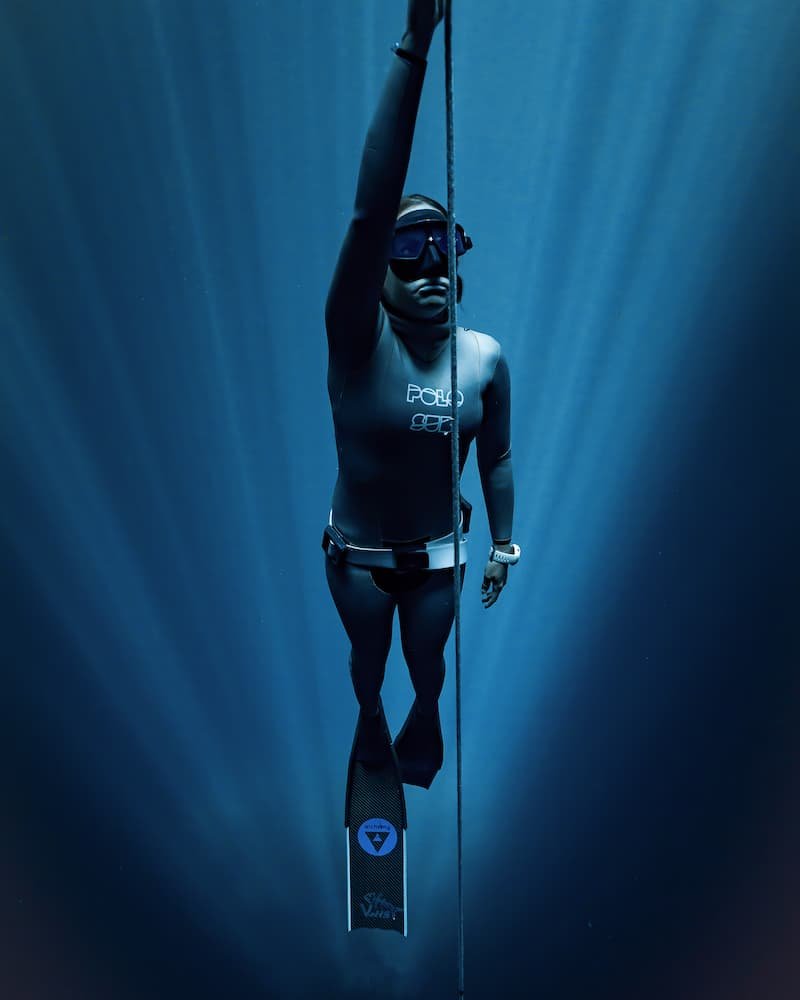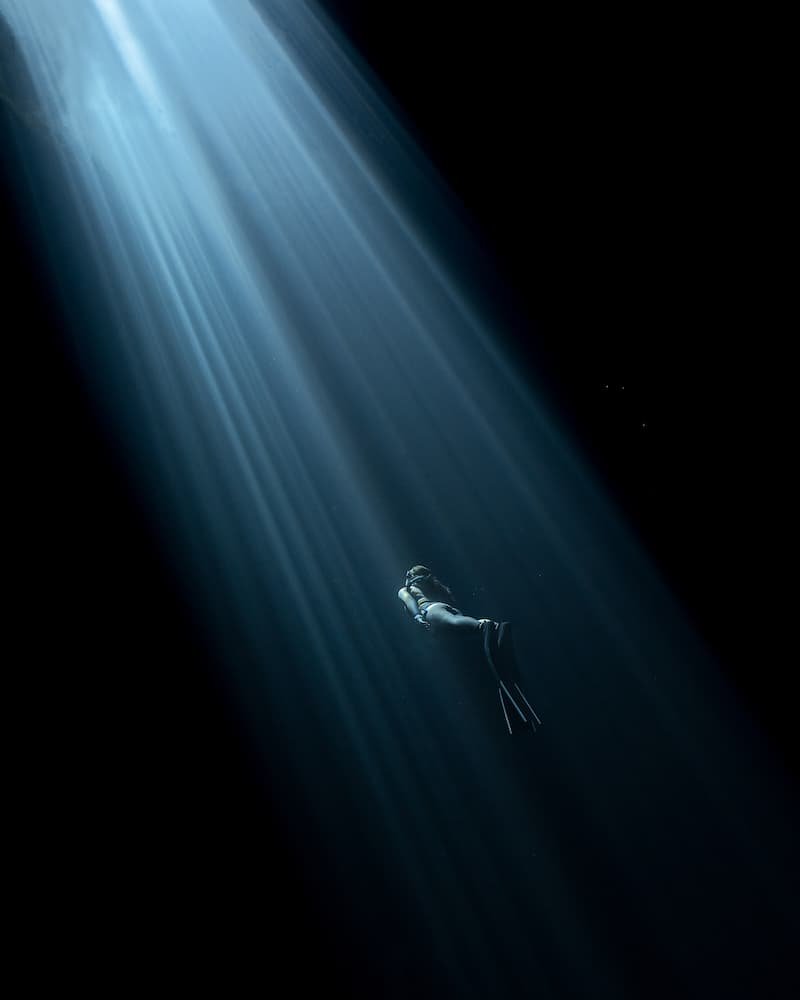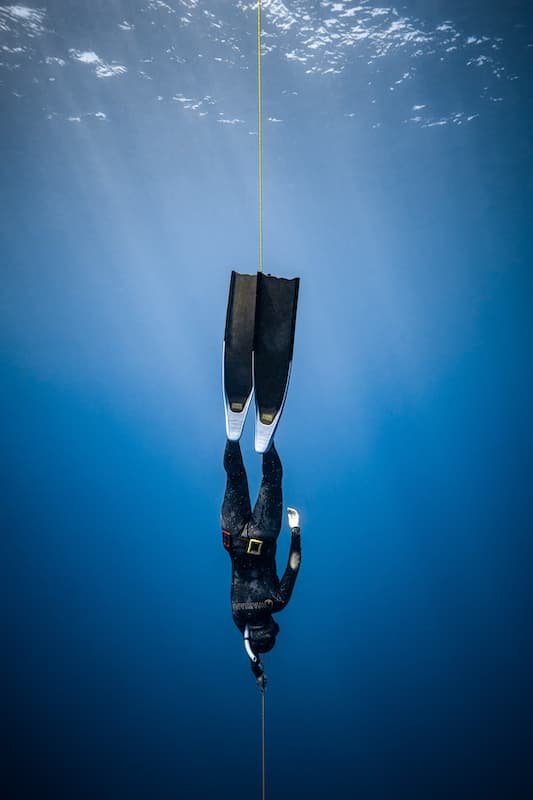Hi, I'm Dean Sevilleno, I'm a three-time national record holder from the Philippines and today I'm going to share with you some tips on how to progress from being a novice to a competitive freediver. So far these are the tips that I can share with you in my personal experience, and this was how I progressed from being a 15-meter diver to a 70-meter diver in less than seven months.
The first step that you need to do in order to progress is to find a good instructor and enroll in a course. You need to find an instructor that has the same goals as you have. I was just lucky enough that my first instructor was also a competitive freediver, so he was able to guide me throughout my journey. You also need to be fully aware of the sport itself, you need to know the anatomy and physiology, the long-term and short-term physiological changes that can happen inside your body when you freedive, and you also need to be fully aware of the risks involved and how to prevent them. Being equipped with the knowledge will also boost your confidence when you freedive and it helps with your progression. And lastly, it's not wise to experiment with methods all by yourself. You need to have supervision from an instructor who knows how to troubleshoot these concerns.
Pool training is beneficial in increasing your overall performance in depth. It is vital in increasing your carbon dioxide tolerance and hypoxic threshold. I usually supplement pool training when I'm preparing for a depth competition and I substitute it whenever I'm not training in the open water. What I love about pool training is that it gives you a baseline of what you could probably do underwater. For example, if you can do a 100-meter dynamic then a 40 to 50-meter depth should be achievable, depending on your adaptation and equalization. So it gives you confidence when you're about to perform your dives or PB dives.

These are the things that you can do anytime and wherever you're comfortable. Your dry exercises such as your stretches and dry equalizations, will always be available, it's up to you how you incorporate it in your training. I usually do my dry exercises the night before a big dive and every rest day. However, I only do light exercises before a big dive. Your dry exercises will help prime the structures such as the muscles involved every time you dive.
I used to hate these dives but by theory, this is where you can simulate your body to deeper depths by just diving shallow. Unlike deep dives you can do a volume of negative pressure dives with little to no scare of decompression sickness. Basically, you are prompting your body to adapt by exposing it more to the pressure that you're or depth that you are simulating. And this is also one of the best ways to practice your equalization, such as your mouth-fill technique. When I do FRCs, I usually charge my mouth fill shallow and just take it to wherever I can. However, there are risks involved in negative pressure dives so you need to have proper supervision and evaluation from an experienced instructor.

Freediving is a mental and physical sport thus cross training can be beneficial in increasing your overall fitness and performance. It also helps with your recovery, lactic acid tolerance and injury prevention. I personally love to incorporate swimming, boxing, Jiu Jitsu and resistance training regularly in my training. And because my specialization is free immersion I always make sure that I do a lot of exercises that require pulling. And what I love about it most is that it aids in lowering your heart rate which can improve your breath hold.
There is a fine line between training right and overtraining and there is no definite answer on how often you need to train. The question is the intensity and volume of your dive. if you're just training your technique and form without the need to dive deep, then you would only need a short recovery time and can train frequently. However if you're training aggressively with more volume, you definitely need a more time to recover before scheduling for another dive session. Scheduling your training depending on the type of dives you do is crucial to avoid burnout and pressure related injuries.

The last thing that I'm going to advise is to sign up for a competition. Look for nearby competitions whether it be local or international competitions. Doing so will give you short-term goals and you will be prompted to achieve those goals. And while you're trying to achieve those don't forget to enjoy the process and have fun. There are days when your dives are at their best and there will also be days when you wouldn't be achieving the goals as planned, then you feel stagnant. I say these are all part of the process what I love to focus on while training is the community. I say that freediving has one of the best communities out there, everyone is just happy and passionate about the sport, we all have that one language that we all gather up and we always make sure that each one is safe, and this is one of the beauties of the sport.